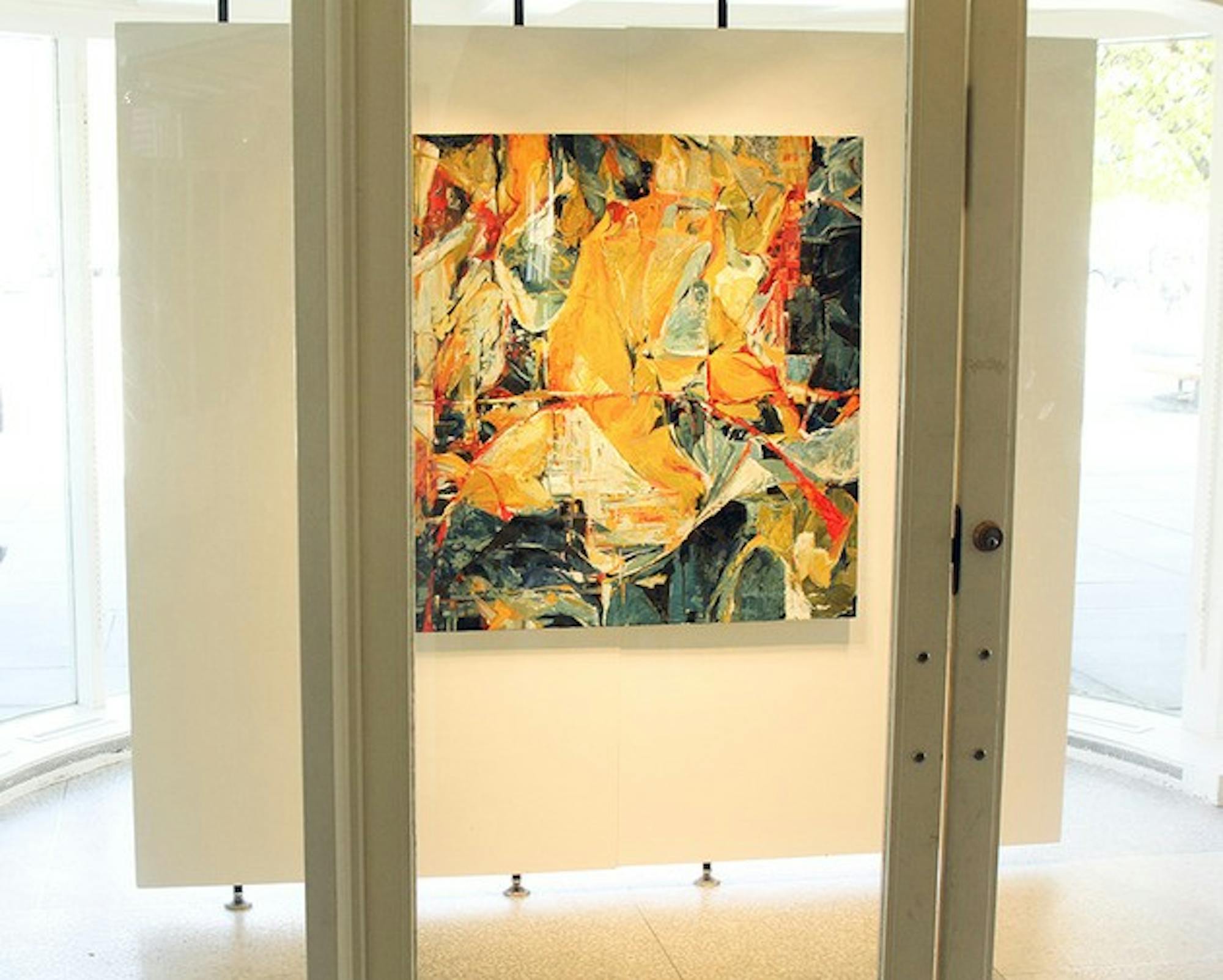Wrobel who was a studio art major while at Dartmouth and currently works as a studio art intern with pulled-back hair hugged by a thick knitted olive scarf, does not give off the impression of the chaotic mental world depicted on canvases.
"The world and life are already chaotic," she said. "I'd prefer them to be just a part of my paintings."
Wrobel said her art-making is a form of liberation. While working on her craft, she uses her creativity to not only bring out the issues that trouble her but also the issues with which everyone grapples, according to Wrobel.
Before she begins working on a piece of art, Wrobel first establishes the "parameters of chaos," she said. These are the catalysts that lead to discovering a resolution and eventually forming her finished piece, Wrobel said.
In "Forgotten Wings" whose title is an allusion to Pablo Neruda's poetic musing on artistic expression Wrobel found the balance between opposing forces by contrasting patches of warmth and coolness in her artwork, she said. Parts of Wrobel's painting seem to merge into an infinitely dense black hole, but she relieves this tension by interspersing it with blank spaces, which she called "rooms for the painting to breathe." The finished work is thus a delicate balance between different colors.
"When I'm painting, there are all these things going on: finding peaces,' finding resolution [and] finding a positive end," she said.
On average, Wrobel spends eight to 40 hours on a single piece of artwork, holding an interrogative "conversation" with the canvas, she said. A fervent speaker of the language of abstraction, she sets herself and her painting in tandem by "[throwing her] whole body into it," she said.
"You put down marks and you see it," Wrobel said. "They speak to you, and you respond to them. At a certain point, you take control and you finish it."
Such an artistic approach mirrors notable abstract expressionist painters like Jackson Pollock and Willem de Kooning, who pioneered the gestural method of painting, which relies on using the entire body. When asked about such a comparison, however, Wrobel said her only commitment is to her own unique and personal style.
"Art history exists," she said. "But in the end, you just have to do it."
Although she is unwilling to attribute her stylistic influences to a single artist, Wrobel cited Cecily Brown, a British contemporary painter whom she met at the Museum of Modern Art in New York City, as the most important figure in providing her with ideas for abstract compositions.
When she painted "Untitled," which is viewable from inside the Hopkins Center, Wrobel was influenced by Belarusian artist Chiam Soutine and British artist Francis Bacon, she said. For the more "earthy hues" seen in this painting, Wrobel said she was influenced by the style of French post-impressionist Paul Gauguin.
In the end, Wrobel's ultimate goal is to make artwork that "people can look at and meditate on," she said.
"If people feel something from it, that would be awesome," she said.
The chaotic artwork on display complements the hectic, bustling life of students at the College. As people enter and exit the Hopkins Center, the various shadows cast onto the convex glass of the rotunda resemble the fluctuating forms in her artwork. Although initially self-conscious about putting her work on display, Wrobel said that the unexpected harmony between the display and campus life contributed to her appreciation of the rotunda exhibit.
"Everything that exists in your own mindset comes from your own perspective," she said. "These are the things that shape your reality and I try to be positive about them."
Wrobel is currently a special instructor for the studio art department and is working on six more abstract artworks under the guidance of professors in the studio.




